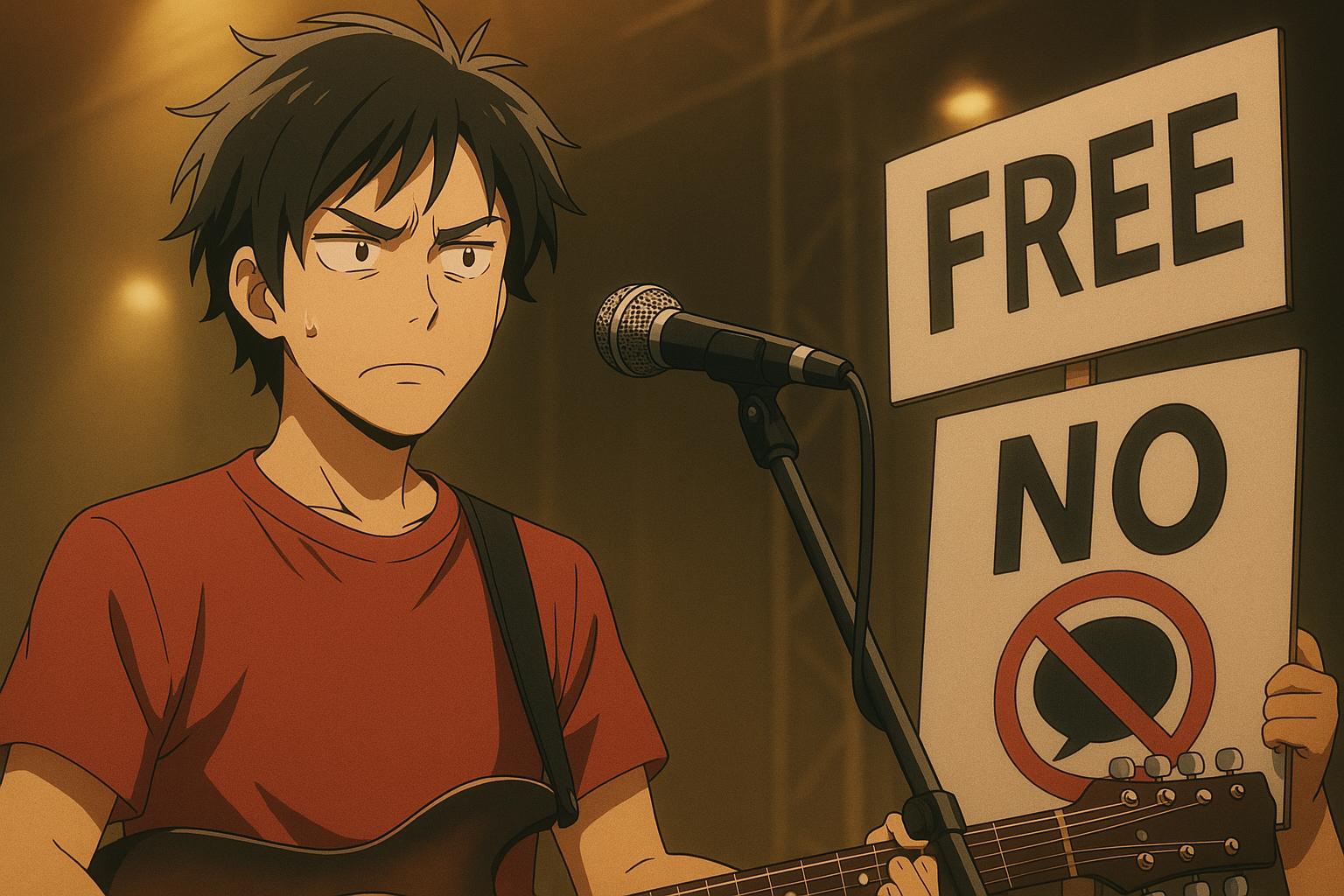The recent controversy surrounding Irish band Kneecap highlights a deeper societal tension on the boundaries of free speech, artistic expression, and political discourse. Following their performance at Coachella, where they made statements aligning with pro-Palestinian sentiments, the trio faced significant backlash after footage emerged showing one member advocating violence against politicians. This situation escalated with calls for the band's withdrawal from Glasgow's TRNSMT festival, stirring a heated debate about artistic freedom and accountability.
In the aftermath of their Coachella appearance, Kneecap issued apologies directed at the families of murdered politicians. However, they also claimed that the videos disseminated after their performance were manipulated, asserting that they had been “exploited and weaponised” to draw attention to their political stance. This claim underscores the precarious nature of modern discourse, where messages can easily be taken out of context or weaponised for political gain.
First Minister John Swinney condemned the remarks made by Kneecap as “completely and utterly unacceptable,” indicating that there is a threshold within public dialogue that must not be crossed. He expressed that such language complicates the band’s ability to participate in public events like TRNSMT, drawing a line between provocative artistic expression and comments that could incite hostility or violence.
Within Glasgow City Council, the responses to Kneecap's comments varied significantly. Scottish Green councillor Jon Molyneux proposed a motion that not only condemned Israel's actions in Gaza but also defended Kneecap, arguing that their persecution stems from a politically motivated smear campaign aimed at silencing dissenting voices. He asserted that criticism of the band was disproportionate, especially considering their broader artistic role as provocateurs. “This is deliberate,” he stated, contending that attempts to cancel events featuring pro-Palestinian artists were part of an ongoing struggle to silence opposition to the Israeli government.
The tumult surrounding Kneecap has drawn varied reactions from political leaders in Scotland. SNP leader Susan Aitken articulated that, while many felt genuinely disturbed by the band’s comments regarding the murder of Conservative MPs, this anger should not culminate in a ban on their performances. Aitken noted that artistic expression inherently involves a level of provocation, and that responses to such expressions should encompass a broader appreciation for freedom of speech, even when the ideas presented are contentious.
Contrary to this, Labour councillor Bill Butler rejected the Green motion, marking a clear distinction between satire and statements perceived as inciting violence. He articulated that freedom of expression does not grant individuals the licence to advocate for murder, arguing that such statements transcend acceptable artistic provocation and enter the realm of dangerous rhetoric.
This controversy serves as a poignant reminder of the complex interplay between art, politics, and the principles of free speech. While artistic freedom is a cornerstone of democratic societies, it raises essential questions about the implications of speech that may incite violence and the social responsibilities artists hold. As this debate continues to unfold, it brings to the fore the crucial need for nuanced discussions about expression, context, and the consequences of provocative art in the public sphere.
As society grapples with these issues, it remains vital to distinguish between genuine calls for discussion and those that obscure the very fabric of civil discourse, thereby framing the future of artistic expression in an increasingly polarised political landscape.
Reference Map
- Information on Kneecap's reactions and apologies.
- Public responses from John Swinney and Jon Molyneux regarding free speech.
- Reactions from Susan Aitken and Bill Butler on the implications of artistic expression.
Source: Noah Wire Services
